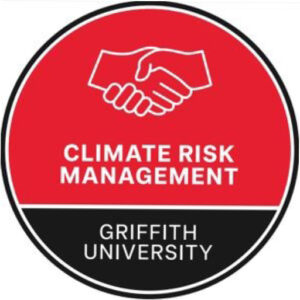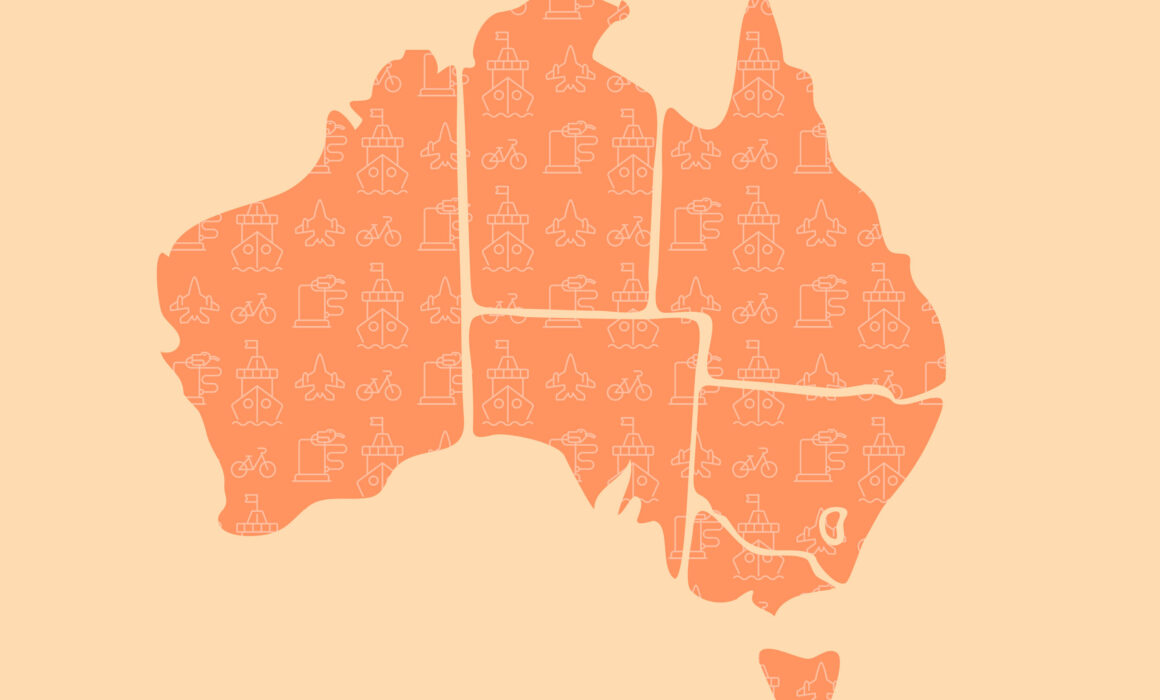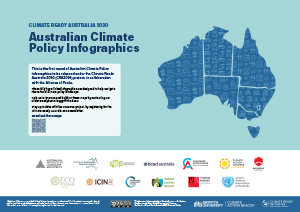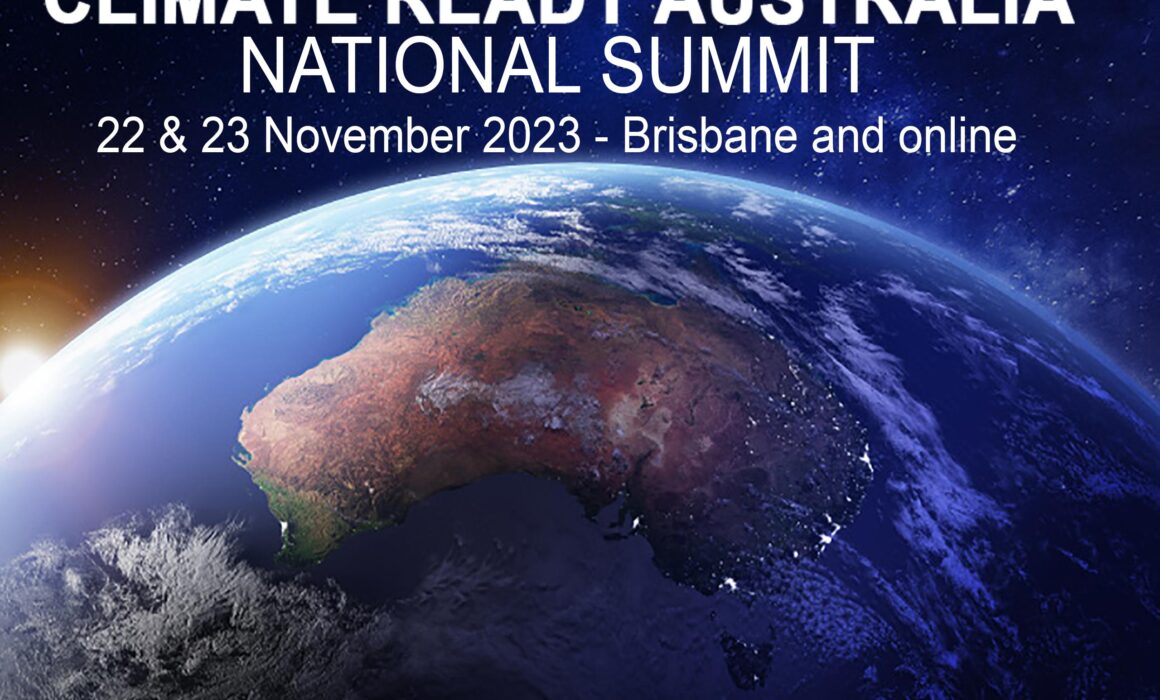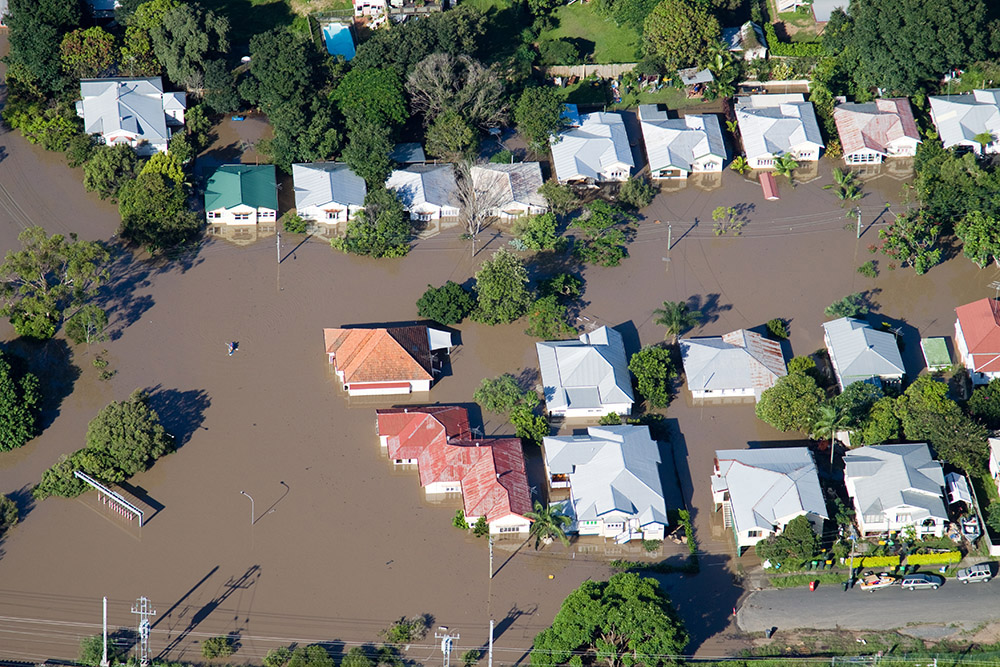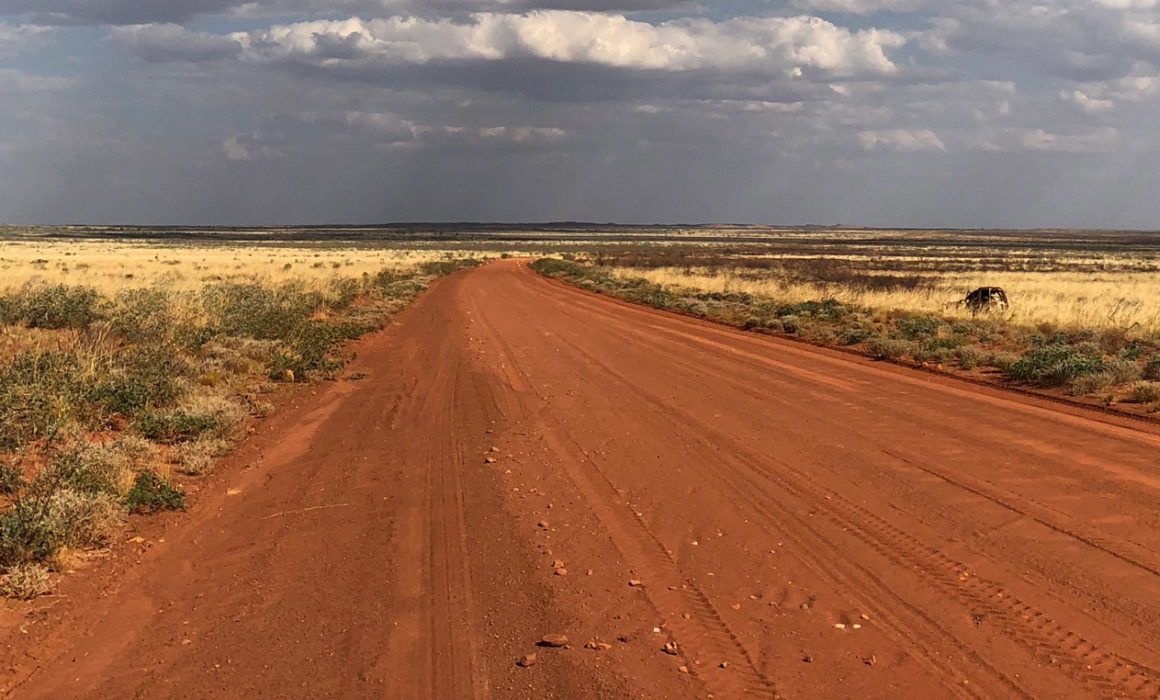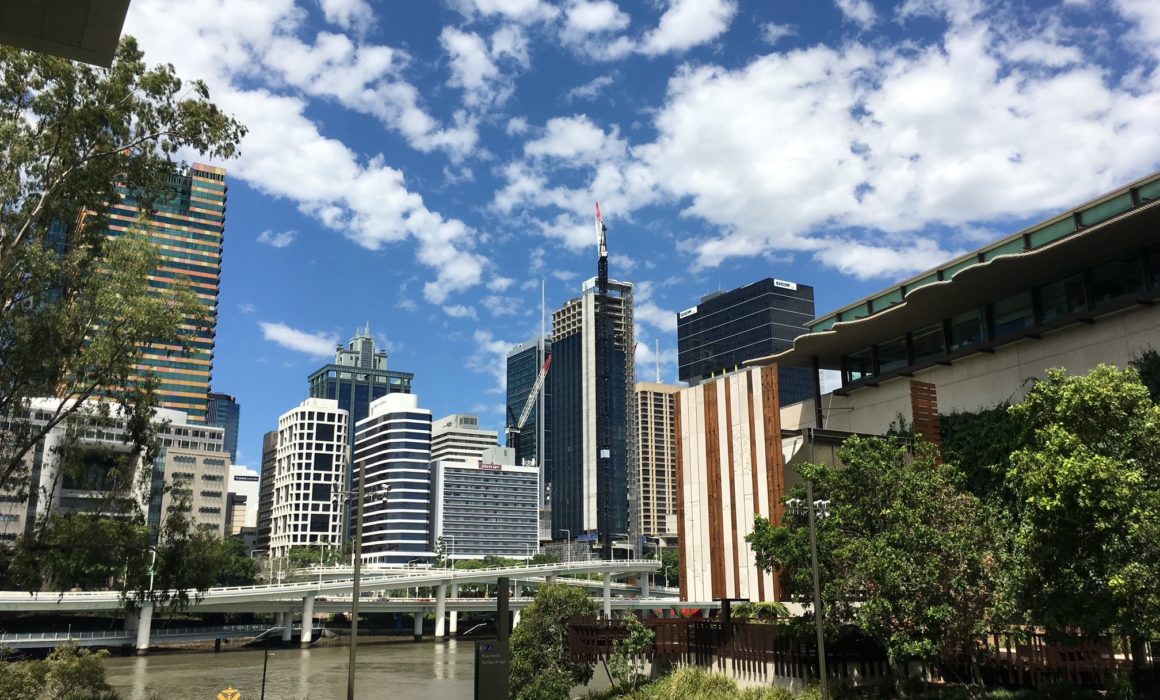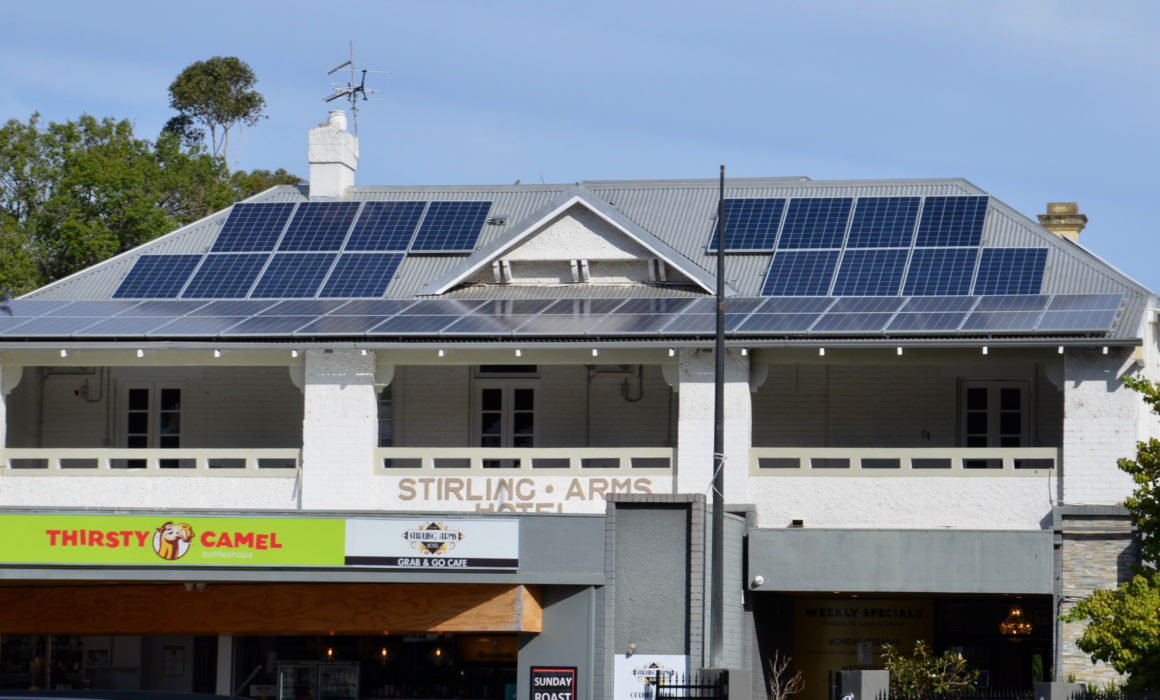New CRA2030 Australian climate policy infographics help navigate the national policy landscape
The Climate Ready Australia 2030 (CRA2030) project has delivered a suite of PDF infographics designed to help organisations understand and navigate the national climate policy landscape they work within.
A CRA2030 Alliance of Peaks working group discussed the need for clarity and understanding around the breadth of Australian climate policy and initiatives, and determined that a helicopter view of the overarching landscape would not only provide a helpful perspective, but prove a potent source of climate action gaps.
The fully hyperlinked PDF infographic suite includes:
- Key Australian climate adaptation policy frameworks and other initiatives at a federal and state/territory level.
- Key Australian climate mitigation policy frameworks, initiatives, agencies, authorities, advisory and partnerships at a federal and state/territory level across six major economic sectors.
The six economic sectors align with the announced development of sectoral decarbonisation plans by Hon Chris Bowen, Minister for Climate Change and Energy (Address to Clean Energy Council on 18 July 2023).
This suite is a foundational project, reflecting a point in time, and is intended to be built upon. We welcome your feedback and contributions towards improving this important resource.
Download the CRA2030 Australian Climate Policy infographics:
Climate Ready Australia National Summit 2023
Empowering and enabling climate action in this critical decade
Now is the time to catalyse climate action in Australia. Our summit will focus on sharing knowledge and building capacity for climate action among Australia’s peak bodies, across all levels of government, business and NGOs—with an agenda driven by the industry peak bodies collaborating together for a Climate Ready Australia 2030.
Day 1 will include the “must-have conversations” affecting organisations that are serious about advancing climate action and enabling a just transition. It will open with strategic thought leadership and discourse to accelerate climate action, with a range of curated and challenging keynotes, discussions and panels. Be inspired by the exhibition space, connect with new partners over lunch and join our official reception and networking event later in the day.
Day 2 will focus on capability building and includes bespoke two-hour learning labs, co-designed and delivered by Griffith University and industry experts. Following on from the first day’s discussions, day two is themed around getting to the “how” of climate action—developing knowledge, leadership, capability and responses to empower effective and just climate action across Australian society.
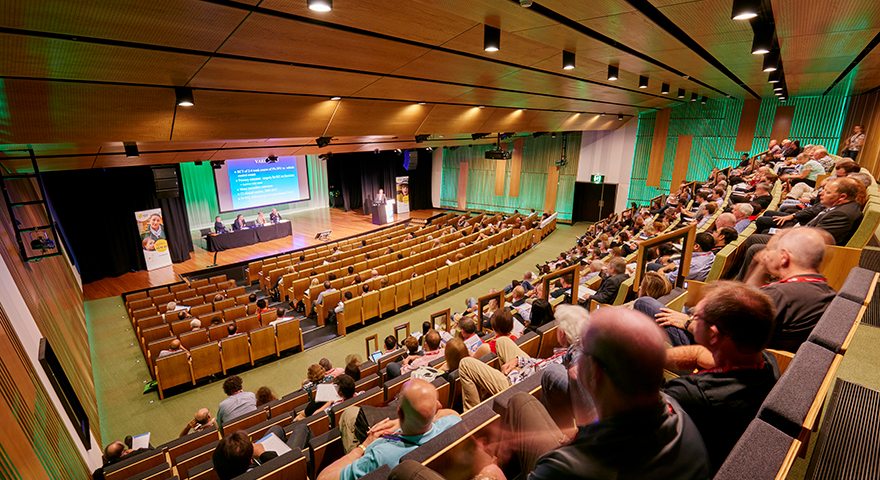
Aviation Reimagined 2023 Webinar Series
Aviation Reimagined is an annual webinar series featuring industry leaders, policymakers and researchers sharing their insights about a transition to a low-carbon and climate ready future for the aviation sector. This is the fourth consecutive year running this successful series, with new speakers and contributors delivering innovative insights from around the world.
The webinar series will be held every Thursday in October from 3-4:30 pm AEST (non-daylight saving time). During each session, you’ll hear from multiple subject matter experts, as well as a 20-minute question and answer session for you to submit your questions to our panel.
The sessions this year explore:
- Science matters – debunking some myths
-
Transformative policy – raising the bar for aviation decarbonisation
-
Climate-ready aviation – industry perspectives and practice
-
Technological innovation and advancements
Reimagining Aviation is facilitated by Dr Emma Whittlesea from Griffith’s Climate Ready Initiative, Professor Tim Ryley from Griffith Aviation and Professor Susanne Becken and Dr Bojana Spasojevic from Griffith’s Institute for Tourism.
We invite you to join us for one or all of our free sessions investigating the latest developments towards decarbonising flight. The program and speakers for each session are detailed at the link below.

Climate Ready Australia 2030 lifts off
Climate Ready Australia 2030’s (CRA2030) Alliance of Peak bodies is kickstarting national action towards a low carbon and climate resilient future with its Shared Agenda and two new climate action projects.

CRA2030 is the flagship project of the Griffith University Climate Action Beacon’s Climate Ready Initiative (CRI), and the project works in partnership with an Alliance of Peak bodies from a cross-section of industry and associations to deliver climate ready projects and solutions.
The CRA2030 Shared Agenda is a strategic framework for national climate action that was finalised at a February roundtable after months of consultation between CRI and the Alliance of Peaks. The first agenda action areas are now being operationalised.
The Alliance of Peaks selected its two initial priority areas for project development, to help enable a sufficient long-term policy framework to facilitate national climate action, and to enable clear and consistent tracking and reporting of emissions to deliver comparable data.
The Alliance of Peaks is now scoping projects that fill gaps and add value in these interlinked spaces.
Terri Butler, a member of the CRI Advisory Board, said: “We recognise that there are organisations, individuals, and governments, across the country, and globally, working on these or similar challenges. The Alliance of Peaks can add value to that work in many ways, including by leveraging relationships across a broad variety of organisations and those organisations’ members.”
Climate policies traverse a wide variety of sectors and issues and include policies on emissions reduction, climate adaptation, sector transition, climate risk management, disaster management, and reporting and disclosure. There is a lot to navigate, so the Alliance of Peaks aims to unpack the contents of the national climate policy landscape and to determine the group’s collaborative opportunities towards enabling action within the existing framework.
Understanding how to track their emissions efficiently is also high on the action agenda, as both mandatory and voluntary emissions reporting becomes critical for business operators who seek to remain competitive in local and global markets.
This need has been escalated by a federal commitment to strengthen climate risk reporting, including the intended phasing-in of mandatory climate risk disclosures, which incorporate emissions disclosures.
The Alliance of Peaks projects will work to support organisations and businesses in Australia to overcome the barriers to emissions tracking and reporting by consolidating tools and processes, sharing credible sources of information across sectors, and identifying gaps and needs for targeted action.
Ecotourism Australia is one of the ten peak bodies on the CRA 2030 Alliance of Peaks that wants to help its members and the wider tourism industry embrace sustainable management practice.
“Good sustainable businesses ultimately need more support across the industry and commitment from government to support affordable, accessible and credible carbon calculation tools that will help tourism operators and the broader business community to enable them to measure and monitor emissions,” Ecotourism Australia CEO Elissa Keenan said.
CRA2030 welcomes new peak bodies to join the Alliance of Peaks in shaping a climate ready Australia. For further information, please contact the CRA2030 Project Manager, Helen Elliott, [email protected]
Queensland Climate Ready Program wraps up
The Queensland Climate Ready Program, funded by the Queensland Government Department of Environment and Science, has been a partnership between DES and Climate Ready Initiative. Phase I ran from August 2018 to July 2021 and Phase II ran between August 2021 and December 2022. The Program is officially closing at the end of December 2022. The Program worked in partnership to help advance the Queensland Government’s:
- Understanding of climate change risks and capacity to manage these.
- Capability to deal with climate risks in a coordinated and consistent way.
- Progress on priority climate risks based on the best available knowledge, skills, and resources.
Delivery of the key outputs was aided by the co-design approach, which helped to unify objectives, making the program fit for purpose and relatable to departments. Griffith’s role as a critical friend enabled deep engagement in the development of strategic tools, capacity building, and practical implementation guidance.
Phase II deliverables
Phase II of the QCR Program built on Phase I and continued institutional strengthening, capacity and capability building, awareness raising, engagement and relationship building for climate risk management (CRM). The five key deliverables of Phase II were:Supporting two departments to undertake baseline climate risk assessments.
- Co-design of a strategic framework for CRM for one department.
- Development of a CRM Guideline for Queensland Government departments, which includes tools and templates, such as framework steps to help departments do CRM (Figure 1), a baseline assessment template, and templates to assist with capacity analysis. 12 case studies are included in the appendices to illustrate real examples of how departments are doing CRM.
- Delivery of a third CRM Symposium which attracted 102 attendees across 17 departments.
- Phase II Final Report to outline key outcomes and the lessons arising.
Factors that facilitate success
- Tools, templates, and checklists are valuable resources to assist with departmental CRM.
- Surveys, co-designed workshops, tailored materials, and presentations from climate science experts are effective awareness raising and engagement activities that can provide training and initial capacity building.
- Co-design is extremely valuable to attain clarity of scope, and to acknowledge that people are coming from different perspectives.
- It is important to ensure there is enough time set to engage, secure and onboard entities from the time of initial engagement to the time an agreement is signed (it can take 6-7 months).
- The process of establishing a Working Group should allow for 3-6 months depending on the size of the organisation and have cross-divisional representatives to undertake a Baseline Assessment.
- Securing resourcing for a lead coordinator for the Baseline Assessment with the support of the department’s executive team to promote the right operating environment is critical for success.
- Guidelines for departmental CRM are best supported by training, and successful implementation requires updates to be made as policy and science evolve.
Looking ahead
The QCR program funded by the Queensland Government ends on 31 December 2022. From January 2023, The Climate Ready Initiative is available to provide these services to interested government departments.
More information
If you would like more information on the QCR Program and how the Climate Ready Initiative may be able to support you on your climate risk management journey, please contact the Project Manager Cheryl Briars: [email protected].
Top Photo : Flooded homes. Image: Getty Images

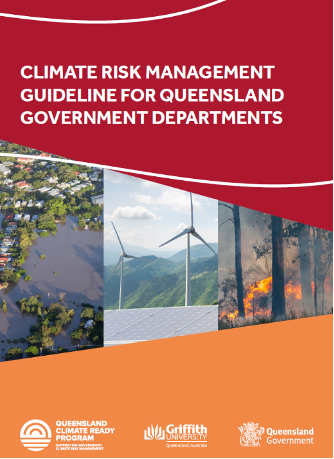
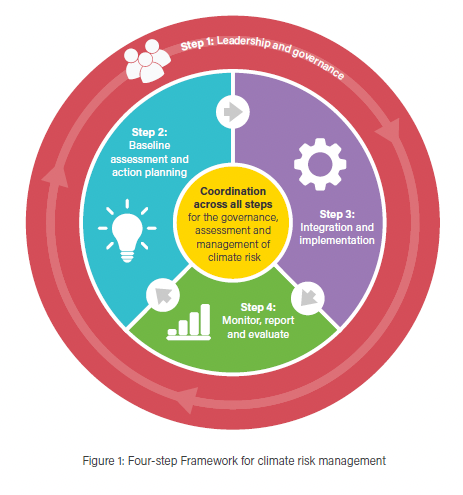
“Without the QCR Program the business would not have asked many of the questions now being asked.”
Climate Ready Australia 2030: project update
CRA2030’s Alliance of Peak bodies is working to finalise its Shared Agenda for climate action in early February 2023. The Alliance’s 2022 roundtable discussions revealed shared challenges around four themes: enabling policy, capacity building, accelerating decarbonisation, and adaptive resilience. Within these themes, thirty-four potential areas for collective action have been identified. These findings have been consolidated and discussions are underway with all Alliance partners as we work towards shaping the Shared Agenda together, for endorsement at the upcoming February Roundtable.
The upcoming Roundtable discussion in February 2023 signposts an important juncture for CRA2030, as the Shared Agenda will be agreed, and the Alliance will choose its Priority Projects for 2023, ramping up tangible climate action.
Delivery of the Shared Agenda will trigger the next stage of the program and the Alliance will select its first Priority Projects. These will be delivered collaboratively, shaping the economy, society, and environment for future success. February/March will see the establishment of project proposals and working groups for each of the Priority Projects.
2023 will be the year where the rubber hits the road. CRA 2030 invites partners from across society to join our existing Alliance of Peaks in realising the Shared Agenda, collaboratively developing the investment plan, and building the national capability needed to drive climate action in Australia.
Together, Australian sectors can help shape a climate ready Australia, acting on economy-wide climate risks and opportunities.
For more information, contact CRA 2030 Project Manager, Helen Elliott [email protected]
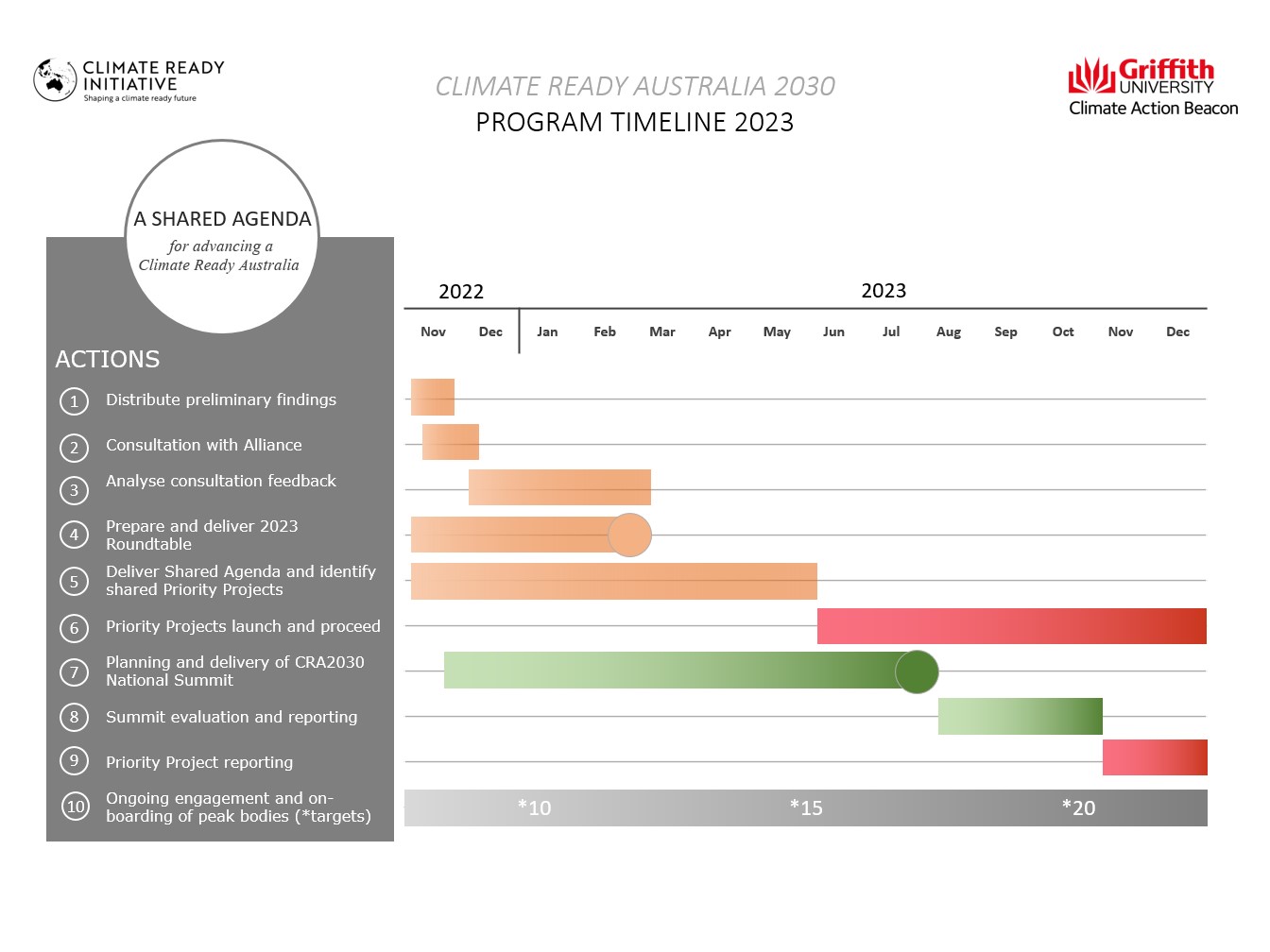 Top image: Photo by Jaana Dielenberg
Top image: Photo by Jaana Dielenberg
Aviation Reimagined 2022 Webinar Series
Globally, emissions from air travel account for 3% of all greenhouse gas emissions, which must be addressed in line with climate change advice from the Intergovernmental Panel on Climate Change (IPCC). As travel behaviours across the world are now returning to normal following easing of COVID-19 restrictions, we are taking a look at the progress that is being made in research, innovation and policies supporting decarbonising the aviation sector.
Aviation Reimagined is an annual webinar series featuring industry leaders, policymakers and researchers sharing their insights about a transition to a low-carbon future for aviation. This is the third consecutive year running this successful series, with new speakers and contributors delivering innovative insights from around the world.
The webinar series commences Thursday 22 September 3-4:30 pm AEST and continues weekly across six sessions. During each session, you’ll hear from three subject matter experts, as well as a 20-minute question and answer session for you to submit your questions to our panel.
Reimagining Aviation is facilitated by Dr Emma Whittlesea from Griffith’s Climate Ready Initiative, and Professor Tim Ryley from Griffith Aviation. The sessions will be supported by co-facilitators Professor Susanne Becken, from Griffith’s Institute for Tourism; Keith Tonkin of Aviation Projects; Michael Burke of Biofutures Queensland; and Dr Michael Kane from the University of Queensland.
We invite you to join us for one or all of our free sessions investigating the latest developments towards decarbonising flight.

Queensland Climate Ready Program, Update

Project in Brief
The Queensland Climate Ready (QCR) Program was established in August 2018 and is a partnership project between Griffith University and the Department of Environment and Science (DES) to strengthen institutional climate risk management within the Queensland Government. The QCR Program sits under the Climate Ready Initiative which is a social impact initiative under Griffith Climate Action Beacon aiming to shape a climate ready future.
The Program works in partnership to help advance the Queensland Government’s:
- Understanding of climate change risks and capacity to manage these.
- Capability to deal with climate risks in a coordinated and consistent way across government.
- Progress on priority climate risks based on the best available knowledge, skills, and resources.
Need for the project?
The Program supports delivery of the Queensland Climate Action Plan 2020-2030 (QCAP), which requires Queensland Government agencies to report their climate change actions and identify and manage climate risks. To read more about Queensland Government commitments to climate change, click here.
Example climate change impacts for Queensland are displayed in Figure 1. These impacts have the potential to exacerbate existing risks and create new operational risks and opportunities for government agencies. Climate risk can disrupt public sector administration by affecting financial security, insurability, and legal liability as well as the ability of agencies to deliver on their strategic objectives if not managed.
What has been happening?
Phase 1 of the Program (2018-2021) included working with four pilot agencies to undertake climate risk baseline assessments of their agency which was effective in raising awareness and building agency capacity in climate risk management. The process helped agencies to identify both gaps and good work that was already underway. Griffith staff managed and delivered the program and provided a critical friend role that included: expertise; support; guidance; and a whole-of-government perspective. Phase 1 demonstrated critical steps to advancing climate risk management at the agency level, setting the strategic challenge, undertaking a baseline assessment, and ensuring there is an institutional strengthening process. Other achievements across Phase 1 included the establishment of a Core Partners Working Group comprising central agencies and delivery of two government knowledge sharing symposiums that engaged all agencies and 80-100 attendees at each one. These events raised awareness of the program and provided an opportunity to strengthen climate risk dialogue across government.
What is the current focus?
Phase 2 of the QCR Program commenced in June 2021 and delivered a third symposium and has engaged two new agencies to undertake baseline assessments. The QCR Program is also developing two guidance documents:
- A high-level strategic framework for an agency that frames a coordinated and consolidated approach to managing climate change and climate risk, that considers and addresses climate adaptation and mitigation.
- A detailed climate risk management guideline for government agencies to help advance their climate risk management in line with the Queensland Climate Adaptation Strategy and contemporary best practice.
We are looking forward to progressing deliverables to the end of 2022 and are planning how we can continue to have an impact in 2023 and beyond.
More Information
If you would like more information on the QCR Program, please contact the Project Manager Cheryl Briars: [email protected]
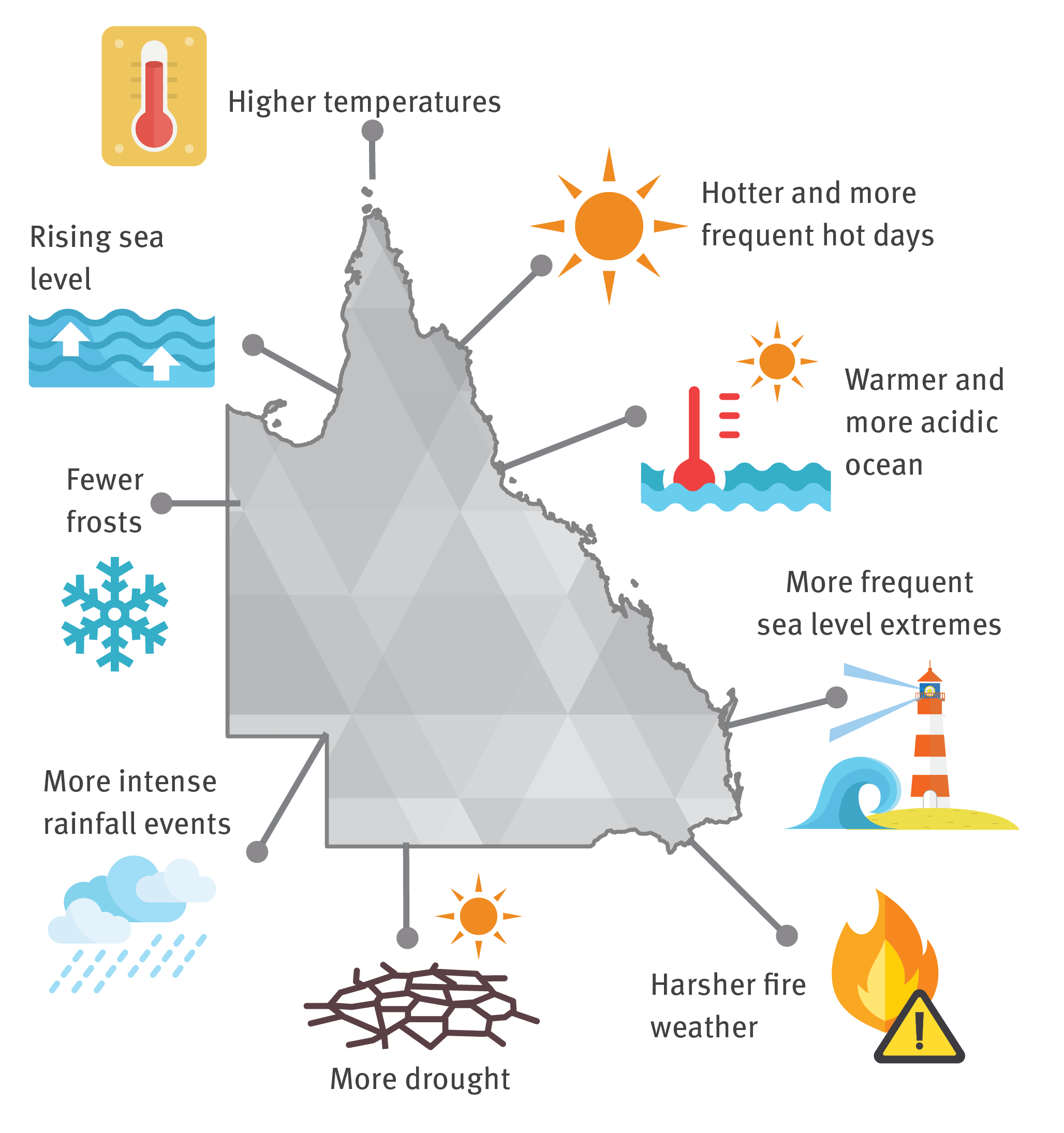
Climate change impacts for Queensland
Who is involved?
The project is a partnership between Griffith University and the Queensland Government Department of Environment and Science.

Top Photo : Brisbane from the Gallery of Modern Art. Image: Jaana Dielenberg
Support coming for associations to be ClimateWise
A strategically important new program is being developed which aims to advance wide-scale emission reduction and climate preparedness across Australian industries and communities, by supporting associations.
With their extensive membership and networks, associations reach into and influence every business, profession, and community across Australia.
Associations frequently have a strong desire to reduce climate emissions and vulnerabilities to climate risks. Despite their large reach, many associations have lean operating teams and can lack the internal resourcing and expertise: to advance climate action within their operations; and to guide their members to take action.
Through practical resources and guidance, ClimateWise Association will help associations and their members to:
- recognise and act on opportunities for action
- adapt their strategies, business plans, investments in property and programs
- leverage their collective power by engaging contractors and partners that understand climate risks and emission reduction opportunities in their supply chains and operations
- amend their training, certification and award programs that influence members
- collaborate with other climate-wise businesses and associations on the journey.
ClimateWise Associations has not yet launched. Funding to grow and staff the program is currently being sought from governments and philanthropists and to also enable associations to engage easily and free of charge.
You can get an advanced peak at the website, to which many additional resources like guides, checklists and a rating tool will be added in coming months.
The Australian program and resources are being developed by a team led by co-founders Helen Millicer and Gail Greatorex, drawing upon their expertise in associations, climate and emissions plus contributions from other expert sources in Australia and overseas.
Helen Millicer says a dozen Australian peak associations have been consulted in the developing the Australian program, including the National Retail Association, Australian Industry Group and Australian Council of Professions.
“Associations want clear ‘can do’ templates that they can easily tailor and integrate into their programs and advice to members. They also want examples from other similar associations and reputable, relevant information produced and presented by people expert in the realities faced by businesses and associations,” Ms Millicer said.
Griffith University’s Climate Ready Initiative (CRI) is supporting the development of ClimateWise Associations and is engaged in discussions to become the home of the program. This would increase the support that CRI can provide to associations at all stages of their climate journeys and complements other CRI work such as the Climate Ready Australia 2030 project which is working with peak associations on cross-sectoral policy and project development.
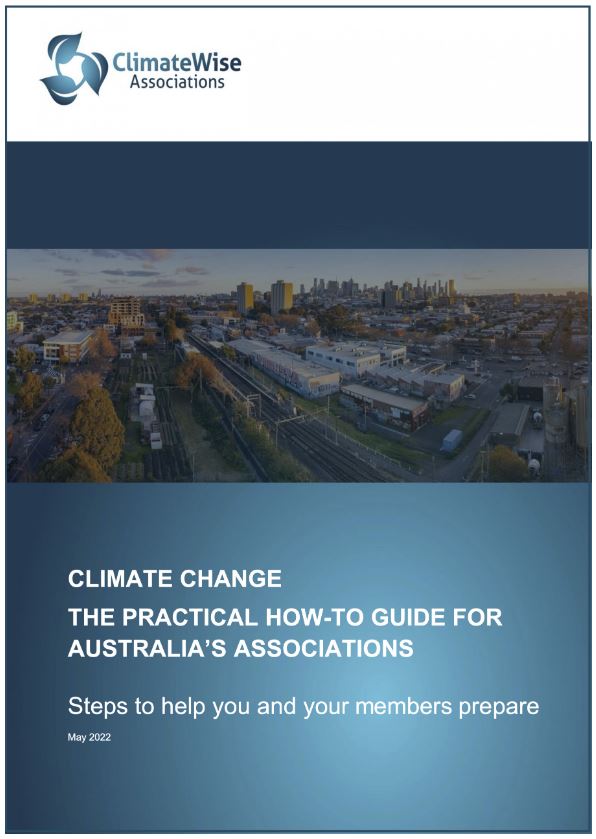
ClimateWise Associations will provide a wide range of practical resources and tools that associations can use to support their members to take climate action.
Top Photo : There are over 4000 associations in Australia and they support buisnesses and communities across the country. Image by JarrahTree, Wikimedia Commons CC BY 2.5 au



